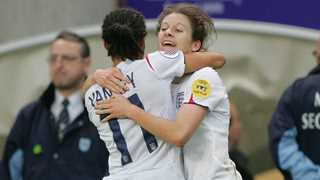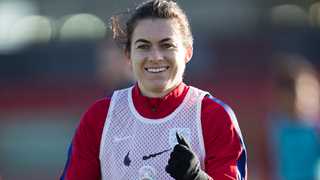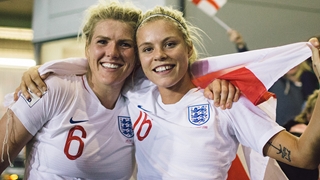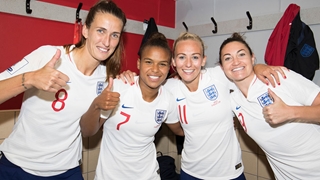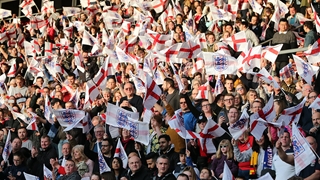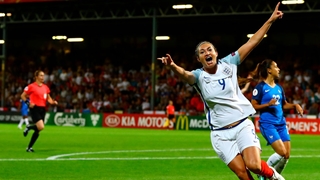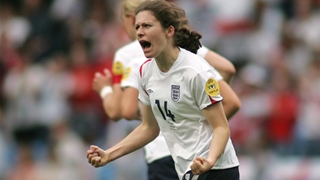
Having burst on to the international scene at Euro 2005, nobody knows better than Karen Carney the impact a home tournament can have on the women’s game.
The England legend, then just 17, scored a dramatic late winner against Finland in front of 29,000 fans at the City of Manchester Stadium.
Although the Lionesses failed to make it past the group stage, the memories of the record crowds, the increased awareness and positive sentiment towards women’s football will stay with Carney forever.
“It was incredible,” she said. “It was the first time I’d seen people walking down the street wearing England jerseys with our names on.
“That opening game at Manchester City was unbelievable. There were so many fans there. It was just an incredible experience and we were incredibly disappointed to go out at the group stage.
“But I really think Euro 2005 put women’s football on the map in this country. It took the game to another level and inspired loads of girls to take up the game.
“I still get people coming up to me 13 years later saying that Euro 2005 was the first time they’d ever watched a women’s match and it got them hooked, and that’s a lovely thing to hear.”
The FA submitted a bid in August to stage the UEFA Euro 2021 finals in England.
The bid proposes a country-wide spread of host cities and stadia, with Wembley Stadium earmarked to stage the tournament’s final in July 2021.
Carney said: “If Euro 2021 is to be staged in England it would be absolutely huge. Even the players who have been to tournaments in the past would be shocked by how big a deal it will be.
“And if I’m not involved come 2021 I know I will be incredibly jealous of all the players who will be because I know it would be one of the best experiences any English player could have.
“Given the way the women’s game is growing, I’d be confident that every England game would sell out and that there would be a huge fanbase following the whole tournament.”
Carney, who has racked up 134 caps, was a key member of Team GB at London 2012, another tournament on home soil which went a long way to growing the women’s game.
She added: “2005 and 2012 were great amplifiers for women’s football. Both tournaments proved that there is a fanbase for the game.
“In 2005 we got all this attention but we didn’t get out of the group. So we regrouped, reinvested and got the quarter finals of a World Cup two years later. In 2012 we got 70,000 at the Brazil game, got people loving women’s football again and then three years later we won bronze at the World Cup.
“It’s no coincidence that these amplifying moments pushed the game on – and I’d expect it to be no different if we host the Euros in 2021. It would be breathtaking.”
The UEFA Executive Committee will announce the host nation on Monday 3 December.


